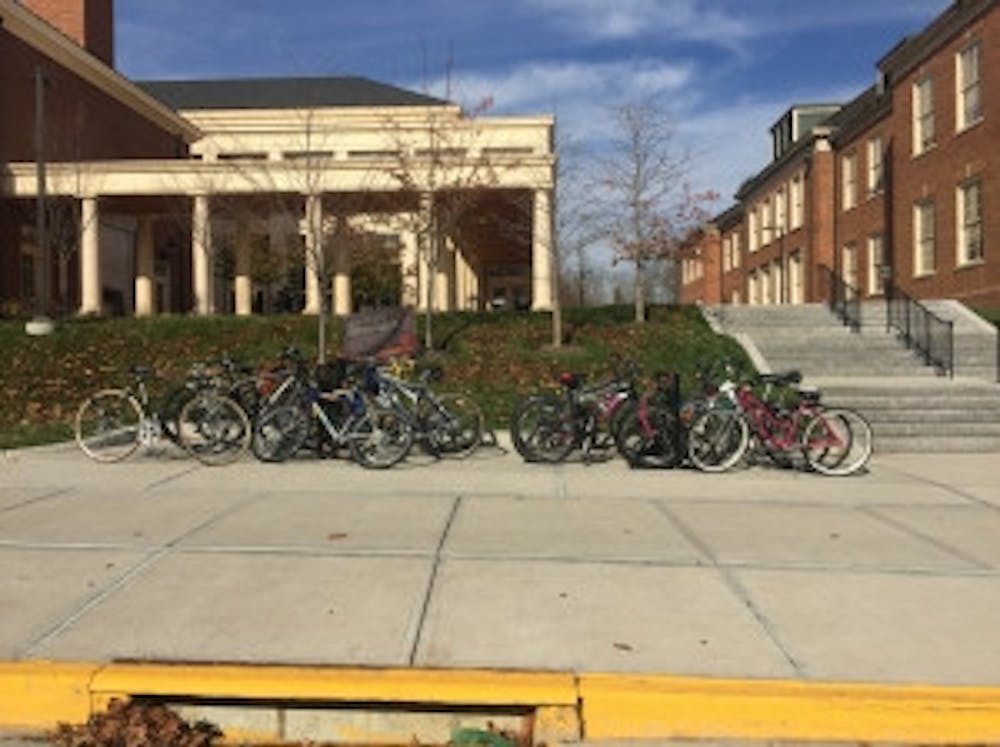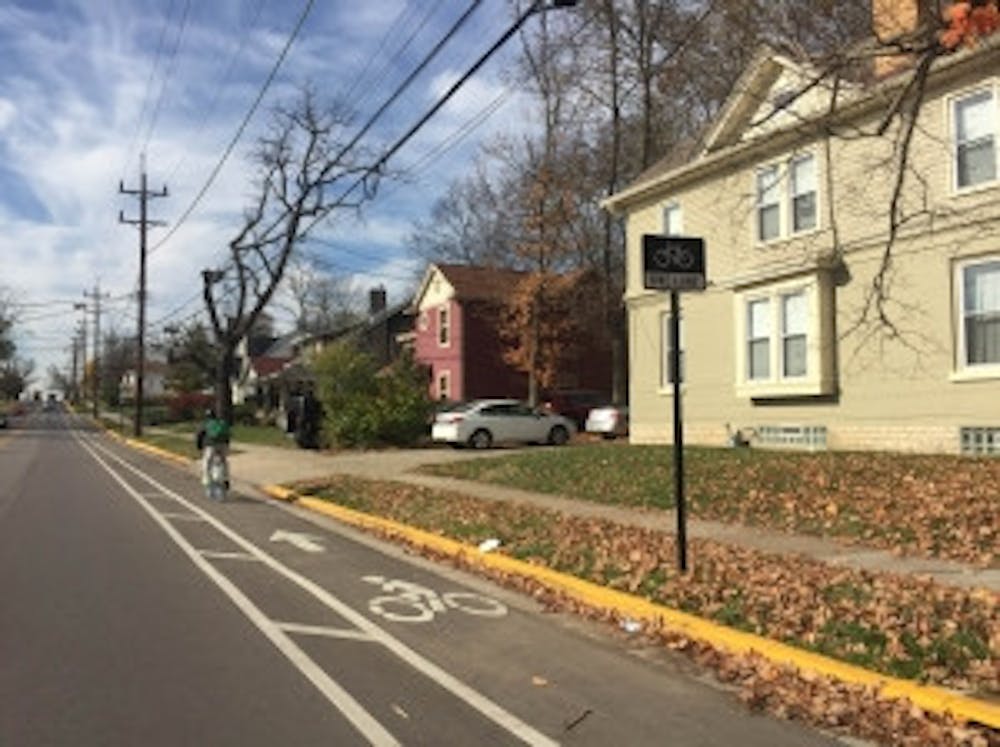By Sarah Tyrrell
There have been rumors floating around campus since the beginning of the semester of a potential bike-sharing program launching at Miami University.
Between involvements of the Lean Committee, ASG, a service learning course and input from bike culturists around campus, students should anticipate the potential of a pilot program within the next year.
Jacqueline Daugherty is teaching Western 431, Synthesis Into Action, a service learning class. They have dedicated their semester to researching a potential bike share program and developing recommendations to present to the Lean Committee.
Daugherty says that Miami is in the minority in Ohio for public universities that don’t have a bike share program.
“I came early this summer to develop the idea,” explained Daugherty, “and I found out there was a need from several different folks for a bike share.”
At Miami it has been difficult to predict how such a program would be responded to since it is a latent demand.
“The service does not exist yet, although there is some hard infrastructure with lanes,” continued Daugherty.
“So what we find in feasibility studies in cities like Dayton and Cincinnati is that a lot of the folks that participate in bike shares are not cyclists before that share exists.”
How could this class determine what the general demand would be if there was no service already in place at Miami?
They were going to have to do a lot of research. During the first few weeks of the semester they began to realize how big a project they were taking on. They decided to divide and conquer.
The class split into individual research groups with different focuses ranging from bike culture to bike safety to infrastructure.
The infrastructure group is interested in bike rack and bike lane locations.
Senior Chris Scavongelli, a member of the infrastructure group, says that his group has designed a survey that will hopefully determine recommendations for bike racks.
“It’s sophisticated as in it’s all interactive. So you get a map and you can click around campus and choose buildings that you’d want to have bike racks at and you can click street segments. You can type in ‘I wish this segment of the street was more safe’.”
This collaborative survey gives students a voice that goes beyond the standard survey that would produce automated responses.
When they offer their recommendations, Scavongelli imagines that they will be able to present a top six bike rack locations that will be essential to this bike share’s success. Another six, or however many they decide on recommending, will be suggested that are less crucial but still popular, and so on.
Senior Haley Donovan is one of the students working with focus groups to gauge perceptions of biking from students. They hosted two forums, one for off-campus students and one for on-campus students, and lured them with pizza.
“There was a lot of talk about when they would utilize the bike share,” explained Donovan after the conclusion of the off-campus forum group.
“There was also the cost that was brought up and whether it would be built in to student fees or if it would be a one time kind of thing. Generally people said if it was a one time thing students said they wouldn’t want to use it.”
During this forum, Donovan’s group asked the off-camps students if the bike share would be more enticing if they were making an environmental impact. The responses showed that students were less interested in the environmental effects and more interested in the personal health benefits.
The overall bike culture on campus seems sporadic but is present nonetheless. With the placement of a bike share program allure students to hop on board with biking, or will many pass? Perhaps a grassroots bike initiative program is the route to take rather than a turn key, expensive share system.
Robert Feldman, better known to many on campus as Biker Bob, is a KNH professor and bike enthusiast. Every Friday, Feldman and a group of students get together at a bike kitchen outside of Phillips Hall to offer their own and others’ bikes maintenance work.
Mountain biking and trail maintenance has been taught at Miami for about five years in a context to personal health and ecology in KNH 402E, Critical Reflection on Practices in Health and Physical Culture. More recently KNH 150M, Introduction to Mountain Biking, has become an extremely popular sprint course offered during both fall and spring semesters.
“They’ve got the bike lanes in and we have our biking classes,” said Feldman. Will the addition of biking infrastructure and the growing interest in biking with the aid of academic opportunities, Feldman and colleagues believe this will benefit the sense of bike culture across campus and increase biking’s popularity.
Many voices need to be heard to determine how to propose the right fit bike share project for our community. Daugherty’s class will is playing a major role in ensuring there are mechanisms in place for student voice.
The end goal for her class is making sure that student voice is available as well as student directed research and action. Those who should be involved and heard are being listened to; no one wants to drag this out and turn it into a bureaucratic mess.
“It seems like the Lean Committee right now is looking on passing recommendations to the next level of decision makers sometime by early next semester,” says Daugherty. Perhaps by next fall semester we will be seeing a pilot bike-sharing program on campus.
Potential Bike-Sharing Program Coming to Miami University

